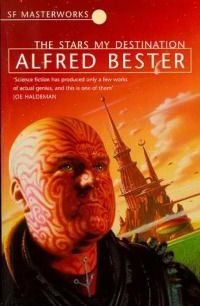
Published by Viking on October 25, 2012
Joe Queenan is a columnist/journalist/writer/reviewer. He describes his regular work as “ridiculing nincompoops and scoundrels.” To some extent, One for the Books is a collection of funny, book-related stories that do exactly that. He ridicules the inept security guards who detained his bag in a library, the luncheons he has attended to honor writers because “they are still breathing,” and the book store employees who treat him like dirt because he isn’t searching for their favored titles. More significantly, One for the Books offers an amusing glimpse at the life of a dedicated reader. The last few paragraphs in particular are a wonderful tribute to reading.
Although reading has collateral benefits, Queenan is convinced that most book lovers read books “to escape to a more exciting, more rewarding world,” a proposition with which I completely agree. Queenan reads every day and would read more if he could. He reads enduring literature and he reads trash (although less of the latter as he ages). He sometimes reads “the types of books that thirtyish women devour at private swim clubs, often to the dismay of their drowning children,” but only years after they have lost their trendy bestseller status. He forms relationships with his books and often prefers their company to the bozos he knows.
Queenan is equally fervent about the books he has read and those he refuses to read, ever. He names names. Yet, for all the titles that Queenan drops (typically several on every page), this isn’t a work of literary criticism. He may or may not mention what the book is about or his impressions of it, but when he does, he rarely employs more than a few words. One for the Books is about Queenan’s experiences as a reader and feelings about reading more than it is about the books he has read.
Queenan is something of a book snob and he makes no effort to disguise his snobbery. Rather, he revels in it. He expresses his opinions forcefully, in the manner of a curmudgeon. Books about businessmen and politicians “are interchangeably awful.” Detective novels are “piffle.” He would rather have his “eyelids gnawed on by famished gerbils than join a book club.” He ridicules the questions prepared for book clubs that can be found in the backs of books and on websites, and contributes (mockingly) a few of his own. He does not want friends to loan him books and cannot understand “how one human being could ask another human being to read Look Homeward, Angel and then expect to remain on speaking terms.” He doesn’t like to discuss books with people who don’t love serious literature because they always set the conversational agenda, which tends to focus on current bestsellers, but he enjoys pulling a book from his shelves and reading “striking passages to baffled dimwits who have turned up at my house.” Although he frequents a variety of bookstores and finds some of them alluring, he is acerbic in his description of their employees (particularly the “Irony Boys”). He complains about readers “upon whom the gift of literacy may have been wasted.” He thinks book critics are “mostly servile muttonheads” while blurb writers are “liars and sycophants.” He refuses to read books about the Yankees and their “slimy fans” or books written by Yankees fans (Salman Rushdie included). He will not read books with ugly covers. He does not read digital editions because they make reading “rote and mechanical,” stripped of its “transcendent component.” He is no friend of the Kindle.
Although we’re often on the same page (so to speak), about equally often I disagree with Queenan’s opinions. This is, after all, a guy who cavalierly dismisses two of my favorite novels, Catcher in the Rye and Catch-22. His decisions about books he will not read are often capricious. That’s fine. Agreement with Queenan is irrelevant because he writes with such passion and conviction and humor that it is impossible not to be entertained, and occasionally moved, by his words. Besides, as Queenan points out, people who care about books are willing to get into knife fights to defend their beliefs. I appreciate that he cares so much, even if I might sometimes be inclined to tangle with him using sharp blades.
Other than a long list of books ranging from The Iliad to the obscure, is there anything Queenan actually likes? Shockingly enough, he claims to admire Amazon book reviews, at least the snide ones written by courageous reviewers who hide behind the bushes, fire their muskets and run away. He even offers (mockingly) a few Amazon reviews of his own. They are hilarious.
Queenan would hate this review because I have nothing nasty to say about his book. My only complaints about One for the Books are (1) its haphazard organization and corresponding (albeit occasional) tendency toward redundancy, and (2) a chapter that is largely devoted to the visits he has made to towns and homes and graves of dead writers bogs down in stream-of-consciousness triviality. Otherwise, I have to say sorry, Joe, but I really enjoyed your book. Fortunately, someone else will come along and trash it, providing him with the kind of review he admires.
RECOMMENDED
 Wednesday, October 31, 2012 at 8:14PM
Wednesday, October 31, 2012 at 8:14PM 


